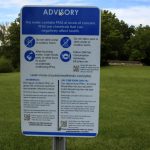Wisconsin to Offer COVID-19 Moderna and Johnson & Johnson Vaccine Booster Doses
DHS supports CDC recommendation to expand eligibility for COVID-19 booster shots
The Wisconsin Department of Health Services (DHS) supports the Centers for Disease Control and Prevention’s (CDC) recommendation that certain populations who have increased risk of exposure to or transmission of COVID-19 receive a booster shot of Moderna COVID-19 vaccine at least six months after having received their second dose of the Moderna vaccine, and that individuals age 18 and older who received the J & J COVID-19 vaccine receive a booster dose at least two months after their primary vaccine dose.
DHS continues to await publication of the CDC clinical guidance for Moderna and J&J booster doses. Once those are published, vaccinators in Wisconsin will be able to begin providing booster doses and ensure they are following the safest protocols.
The CDC also recommended that health care professionals be allowed to provide a different COVID-19 vaccine as a booster than the one initially received, providing flexibility to health care providers and additional options for individuals. This recommendation applies to all three COVID-19 vaccines currently available in the United States.
Moderna and Pfizer COVID-19 booster recommendation:
DHS recommends that the following populations receive a booster dose of Moderna or Pfizer at least six months after receiving their second dose of Moderna or Pfizer in order to further strengthen their immunity:
- People 65 years and older
- All residents in long-term care
- People ages 18 and older with certain underlying medical conditions(link is external)
- Cancer
- Chronic kidney disease
- Chronic lung diseases, including COPD (chronic obstructive pulmonary disease), asthma (moderate-to-severe), interstitial lung disease, cystic fibrosis, and pulmonary hypertension
- Dementia or other neurological conditions
- Diabetes (type 1 or type 2)
- Down syndrome
- Heart conditions (such as heart failure, coronary artery disease, cardiomyopathies or hypertension)
- HIV infection
- Immunocompromised state (weakened immune system)
- Liver disease
- Overweight and obesity
- Pregnancy
- Sickle cell disease or thalassemia
- Smoking, current or former
- Solid organ or blood stem cell transplant
- Stroke or cerebrovascular disease, which affects blood flow to the brain
- Substance use disorder
- People ages 18 and older who are at increased risk for COVID-19 exposure and transmission because of their job or institutional settings. Occupations at increased risk for COVID-19 exposure and transmission include front line essential workers and health care workers:
- First responders (health care workers, firefighters, police, staff at congregate care facilities)
- Education staff (teachers, support staff, childcare workers)
- Food and agriculture workers
- Manufacturing workers
- Corrections workers
- U.S. Postal Service workers
- Public transit workers
- Grocery store workers
- This list could be updated in the future
J & J booster dose recommendation:
DHS recommends that the following populations receive a booster dose of J & J vaccine at least 2 months after receiving their first dose in order to further strengthen their immunity:
- People age 18 and older
“Booster doses are intended to help people who are vaccinated maintain the highest possible level of immune system protection for as long as possible,” said Dr. Ryan Westergaard, Chief Medical Officer for the Bureau of Communicable Diseases. “It’s important to remember that all the authorized COVID-19 vaccines offer strong protection after the primary series. Getting every eligible person vaccinated continues to be our most important strategy for preventing severe illness, hospitalization, and death.”
For additional information about booster doses, additional doses, and help accessing your COVID-19 vaccine record to determine when you may be recommended for a booster, visit the DHS Additional Doses and Booster Doses webpage.
With the high-level of disease transmission in Wisconsin, DHS continues to urge everyone who is not vaccinated to get the COVID-19 vaccine, and for all people to add additional layers of protection including masking up indoors, staying home when feeling sick, and avoiding large indoor gatherings.
To find a COVID-19 vaccine provider in your community, visit Vaccines.gov(link is external), or call 211 or 877-947-2211. For up-to-date information about Wisconsin’s COVID-19 response, visit the DHS COVID-19 webpage. You can also follow @DHSWI on Facebook(link is external), Twitter(link is external), or dhs.wi on Instagram(link is external) for more information on COVID-19.
NOTE: This press release was submitted to Urban Milwaukee and was not written by an Urban Milwaukee writer. While it is believed to be reliable, Urban Milwaukee does not guarantee its accuracy or completeness.
More about the Coronavirus Pandemic
- Governors Tony Evers, JB Pritzker, Tim Walz, and Gretchen Whitmer Issue a Joint Statement Concerning Reports that Donald Trump Gave Russian Dictator Putin American COVID-19 Supplies - Gov. Tony Evers - Oct 11th, 2024
- MHD Release: Milwaukee Health Department Launches COVID-19 Wastewater Testing Dashboard - City of Milwaukee Health Department - Jan 23rd, 2024
- Milwaukee County Announces New Policies Related to COVID-19 Pandemic - County Executive David Crowley - May 9th, 2023
- DHS Details End of Emergency COVID-19 Response - Wisconsin Department of Health Services - Apr 26th, 2023
- Milwaukee Health Department Announces Upcoming Changes to COVID-19 Services - City of Milwaukee Health Department - Mar 17th, 2023
- Fitzgerald Applauds Passage of COVID-19 Origin Act - U.S. Rep. Scott Fitzgerald - Mar 10th, 2023
- DHS Expands Free COVID-19 Testing Program - Wisconsin Department of Health Services - Feb 10th, 2023
- MKE County: COVID-19 Hospitalizations Rising - Graham Kilmer - Jan 16th, 2023
- Not Enough Getting Bivalent Booster Shots, State Health Officials Warn - Gaby Vinick - Dec 26th, 2022
- Nearly All Wisconsinites Age 6 Months and Older Now Eligible for Updated COVID-19 Vaccine - Wisconsin Department of Health Services - Dec 15th, 2022
Read more about Coronavirus Pandemic here
Mentioned in This Press Release
Recent Press Releases by Wisconsin Department of Health Services
DHS Highlights Impact of Federal SNAP Changes on Wisconsinites
May 22nd, 2025 by Wisconsin Department of Health ServicesProposed changes to SNAP will cost taxpayers $314 million per year and put 90,000 people at risk of losing benefits
DHS Campaign Increases Awareness of Wisconsin’s Aging and Disability Resource Centers
May 15th, 2025 by Wisconsin Department of Health ServicesNew toll-free phone hotline and resource directory make finding resources and services easier statewide






















